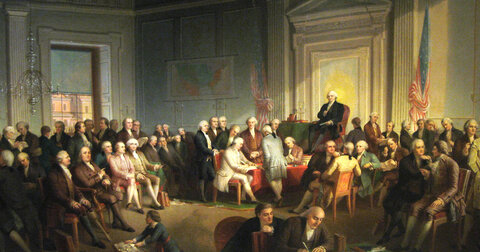
Thirty years ago this January, I quit my perfectly good engineering job to join the save-the-world business. Three decades at anything prompts retrospection. Here are a few things I know now about public policy and the freedom movement that I did not know in 1995.
- It’s better to be for people than against things.
- Good ideas are not inherently persuasive. Even brilliant ideas must be sold. Without persuasion, ideas are merely academic.
- Persuasion in public policy must reach beyond logic. Effective persuasion engages the mind (logos) as well as the heart (pathos) and rests on credible authority (ethos).
- Most lawmakers are not primarily interested in the details of public policy. They find other parts of the job more attractive. This creates obstacles and opportunities for us.
- Finding a person to illustrate a policy point is more powerful than explaining a policy concept. Our research analyzes and predicts government failure, but our news and litigation divisions find people to tell the world how government-backed coercion and overreach have harmed them.
- Electing the party that campaigns on free markets does not automatically produce free-market governance. Electing that party without changing its incentives will disappoint us. That’s why we don’t shy away from naming names of political leaders who support legislation at odds with their free-market rhetoric.
- Lawmakers typically do not lead social change, even when passing landmark laws. Rather, lawmakers ratify what the public has already indicated it will demand or at least accept. This is the Overton Window in a nutshell.
- Economics is not best understood as a precise science of dollars and cents. Predicting the economic results of a law or program is at least as difficult as predicting anything else involving human behavior. That’s another reason not to have much faith in central planning.
- The bulk of good governance consists largely in doing nothing. In government, modesty is a cardinal virtue.
- Optimism is essential in the battle to save the republic. Temper it with reason; temper it with realism. But pessimism is demotivating — and self-fulfilling.
- You will never get everything you want in our political system, and that can be OK. Not every loss is a disaster, and no single win ushers in nirvana. “There is a great deal of ruin in a nation,” Adam Smith wrote in 1777.
- The ground of liberty is to be gained by inches.
- Without the ability to go on offense, the best you will do is lose more slowly.
- Opportunities are perishable.
- It is crisis that produces real change, whether or not the crisis is real.
- There are no permanent victories; there are no permanent losses.
- There never has been a golden age of liberty, and there never will be. Policies of the past may have been better, but not because they’re in the past. The future might be better, but only if we make it better.
- Things that are bound to happen will eventually happen, even if it takes a long time. That’s why it’s worth focusing on problems that are important, even when they are not urgent. We should never stop warning of the dangers of problems like runaway public debt, for instance, or any policy that just kicks the can down the road for someone else to deal with.
- The states are powerful engines of change in Washington. Not only do they exert political influence, but the U.S. Constitution gives them special legal heft. Change doesn’t begin in Washington; it ends there.
- America is amazingly full of generous, civic-minded, principled, hard-working people committed to the basic ideas of this country’s founding. I knew they were there; I just didn’t know how many and how passionate they were.
People wiser than I am taught me most of these lessons. I figured out a few on my own. All of us at the Mackinac Center are better equipped to advance sound policy than we were 30 years ago.